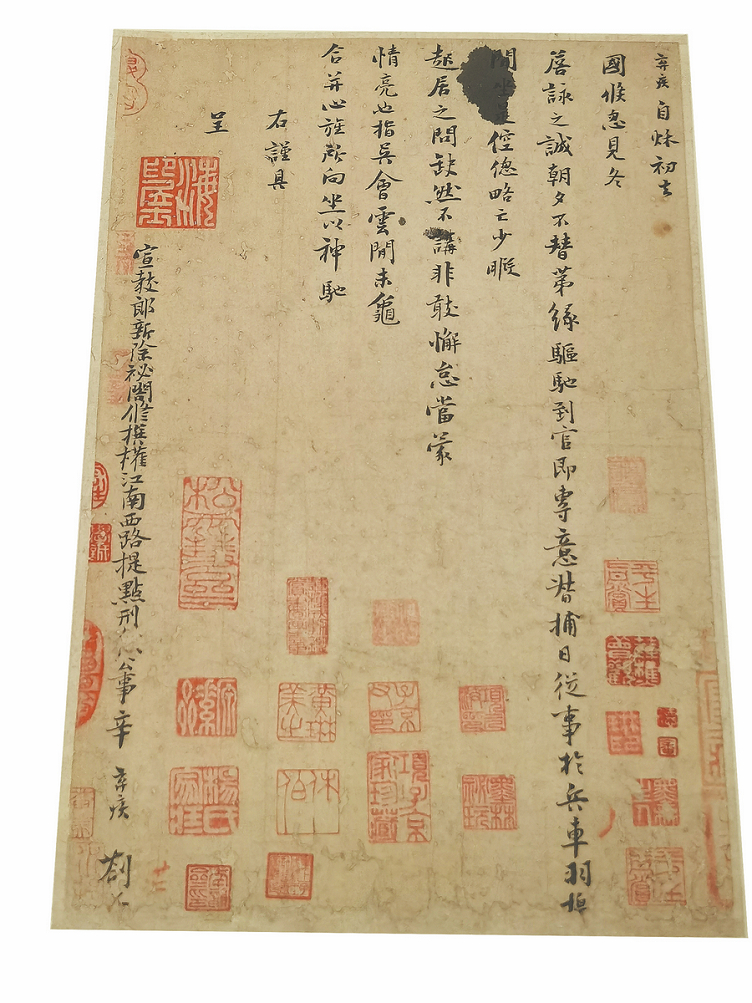

A poet from the Southern Song period (1127-1279), Xin Qiji, is a household name for Chinese people. However, only one of his calligraphy works has survived, and it is at the exhibition.
Due to his disagreement with the appeasement policy handling relations with the northern neighbor of Song, Xin, also an official and a general, was relegated down the ranks of officialdom several times. Nevertheless, he never swerved in his determination to recover lost territories for the country.
"Xin's characters are tall and straight, just like his strong personality," Wei says. "Putting this piece near the end of the visiting route, we want to remind people to think of the psychological strength hidden in Chinese characters. Viewing their writings, we can feel their morals and patriotism."
Nutrition provided by hanzi benefited a wide area beyond China. A section of the exhibition reviews its spread across Japan, Vietnam, and the Korean Peninsula through history.
"Absorbing Confucian ethics, these regions that were deeply influenced by Chinese culture also developed their own writing systems on the basis of hanzi," Wei says.
An exhibited book in hanzi, The Annals of the Great Koshi, first compiled by the 13th-century Vietnamese historian and then printed in Japan in 1885, is a perfect example showing such a cultural sphere.
"The beautiful words of hanzi and the human spirit they expressed are coordinates of civilization that have stood the test of time," Wei concludes.
Contact the writer at wangkaihao@chinadaily.com.cn